Body Weight
How to submit an article:
- Registered users can submit any published journal article that has a unique DOI (Digital Object Identifier) name or link to Research Hub.
- For example, you can paste the full DOI link:
https://doi.org/10.1109/5.771073or just the DOI name:10.1109/5.771073into the field above and click submit. - The person who is first to submit a valid article to Research Hub will forever be credited for it, and every article submission earns you +6 Research Points.
Related Topics
Published research studies are articles that present the findings of original research that has undergone a peer-review process and has been made publicly available in scholarly journals, books or other media.

Anti-Menopausal Effect of Soybean Germ Extract and Lactobacillus gasseri in the Ovariectomized Rat Model
2023 Oct 23 Nutrients Lee SH, Lim TJ, Yun EJ, Kim KH, Lim S
Animal Study Experimental Study Menopause Soybean BacillusA combination of soybean germ extract and a probiotic significantly improved menopause-related conditions and mood in an ovariectomized rat model.

State-of-the-art review of theabrownins: from preparation, structural characterization to health-promoting benefits
2023 Aug 16 Critical Reviews in Food Science and Nutrition Cheng L, Wei Y, Peng L, Wei K, Liu Z, Wei X
Review ArticleTheabrownins, a major ingredient in dark tea, significantly contribute to multiple health benefits by modulating lipid metabolism, reducing weight gain, and preventing diseases, surpassing other tea types.

Exploring the Potential Benefits of Natural Calcium-Rich Mineral Waters for Health and Wellness: A Systematic Review
2023 Jul 13 Nutrients Pop MS, Cheregi DC, Onose G, Munteanu C, Popescu C, Rotariu M, et al.
Systematic Review Meta-Analysis Cardiovascular Disease High Blood Pressure Mineral Water Natural Calcium-rich mineral water Bone Health CalciumNatural calcium-rich mineral waters offer a bioavailable calcium source, beneficial for bone health, cardiovascular function, weight management, and overall well-being.
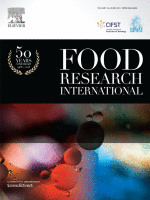
Effect of fermented soy beverage in aged female mice model
2023 Jul Food Research International Ruiz de la Bastida A, Langa S, Peirotén , Fernández-Gonzalez R, Sánchez-Jiménez A, Maroto M, et al.
Animal Study Experimental Study Soy Milk Ovarian Function MenopauseFermented soy milk significantly improves lipid profiles and fertility in a model of premenopausal mice, due to increased bioavailability and action of beneficial compounds.
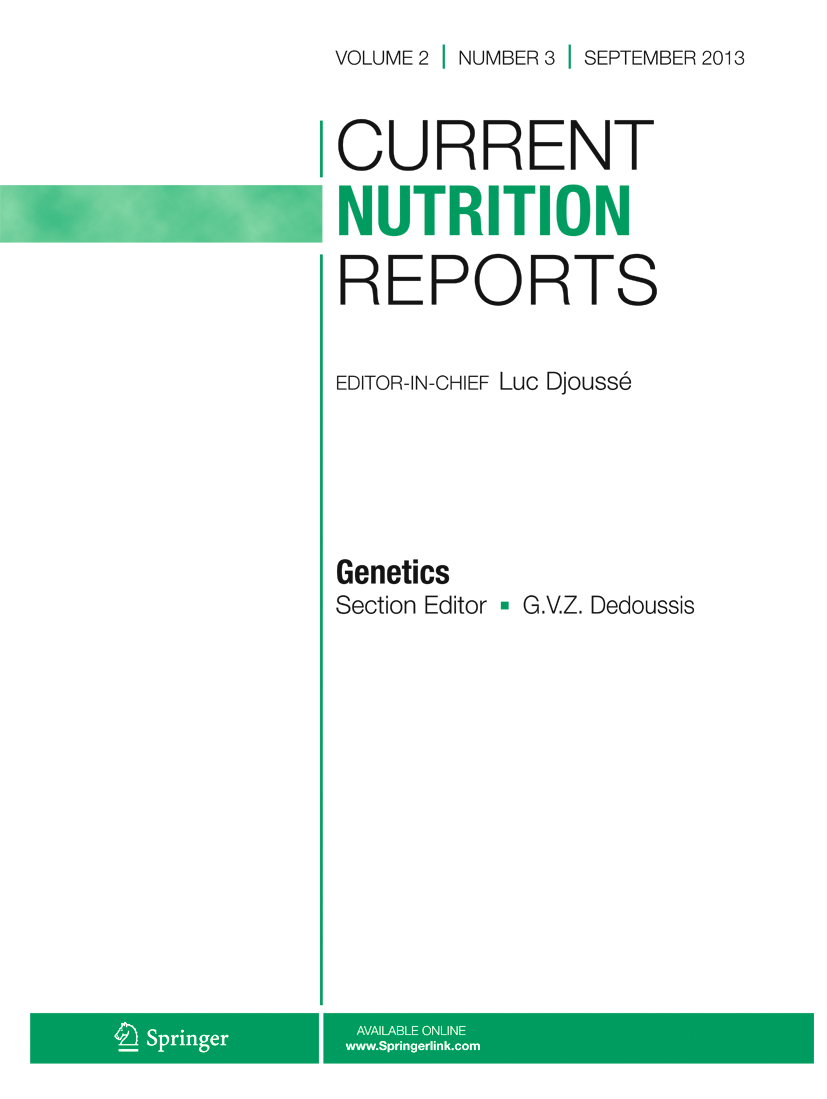
Impact of Oats on Appetite Hormones and Body Weight Management: A Review
2023 Feb 15 Current Nutrition Reports Shehzad A, Rabail R, Munir S, Jan H, Fernández-Lázaro D, Aadil RM
Review Article Obesity Appetite OatsOats, in various edible forms, can regulate appetite hormones, aid weight management, strengthen the immune system, and contribute to gut health, making them effective for obesity management.
Research insights are moderated by the Research Hub team and offer an at-a-glance overview of interesting research findings.

2023 Nutrients
A combination of soybean germ extract and a probiotic significantly improved menopause-related conditions and mood in an ovariectomized rat model.
Animal Study Bacillus Menopause Soybean
Anti-Menopausal Effect of Soybean Germ Extract and Lactobacillus gasseri in the Ovariectomized Rat Model
Lee SH, Lim TJ, Yun EJ, Kim KH, Lim S

2023 Critical Reviews in Food Science and Nutrition
Theabrownins, a major ingredient in dark tea, significantly contribute to multiple health benefits by modulating lipid metabolism, reducing weight gain, and preventing diseases, surpassing other tea types.
Review Article
State-of-the-art review of theabrownins: from preparation, structural characterization to health-promoting benefits
Cheng L, Wei Y, Peng L, Wei K, Liu Z, Wei X

2023 Nutrients
Natural calcium-rich mineral waters offer a bioavailable calcium source, beneficial for bone health, cardiovascular function, weight management, and overall well-being.
Systematic Review Bone Health Calcium Cardiovascular Disease High Blood Pressure Mineral Water
Exploring the Potential Benefits of Natural Calcium-Rich Mineral Waters for Health and Wellness: A Systematic Review
Pop MS, Cheregi DC, Onose G, Munteanu C, Popescu C, Rotariu M, et al.

2023 Food Research International
Fermented soy milk significantly improves lipid profiles and fertility in a model of premenopausal mice, due to increased bioavailability and action of beneficial compounds.
Animal Study Menopause Ovarian Function Soy Milk
Effect of fermented soy beverage in aged female mice model
Ruiz de la Bastida A, Langa S, Peirotén , Fernández-Gonzalez R, Sánchez-Jiménez A, Maroto M, et al.

2023 Current Nutrition Reports
Oats, in various edible forms, can regulate appetite hormones, aid weight management, strengthen the immune system, and contribute to gut health, making them effective for obesity management.
Review Article Appetite Oats Obesity
Impact of Oats on Appetite Hormones and Body Weight Management: A Review
Shehzad A, Rabail R, Munir S, Jan H, Fernández-Lázaro D, Aadil RM
Review Articles
Review articles summarise and critically evaluate the current state of research on a specific topic or field by synthesising multiple primary research studies.

State-of-the-art review of theabrownins: from preparation, structural characterization to health-promoting benefits
2023 Aug 16 Critical Reviews in Food Science and Nutrition Cheng L, Wei Y, Peng L, Wei K, Liu Z, Wei X
Review ArticleTheabrownins, a major ingredient in dark tea, significantly contribute to multiple health benefits by modulating lipid metabolism, reducing weight gain, and preventing diseases, surpassing other tea types.

Exploring the Potential Benefits of Natural Calcium-Rich Mineral Waters for Health and Wellness: A Systematic Review
2023 Jul 13 Nutrients Pop MS, Cheregi DC, Onose G, Munteanu C, Popescu C, Rotariu M, et al.
Systematic Review Meta-Analysis Cardiovascular Disease High Blood Pressure Mineral Water Natural Calcium-rich mineral water Bone Health CalciumNatural calcium-rich mineral waters offer a bioavailable calcium source, beneficial for bone health, cardiovascular function, weight management, and overall well-being.

Impact of Oats on Appetite Hormones and Body Weight Management: A Review
2023 Feb 15 Current Nutrition Reports Shehzad A, Rabail R, Munir S, Jan H, Fernández-Lázaro D, Aadil RM
Review Article Obesity Appetite OatsOats, in various edible forms, can regulate appetite hormones, aid weight management, strengthen the immune system, and contribute to gut health, making them effective for obesity management.
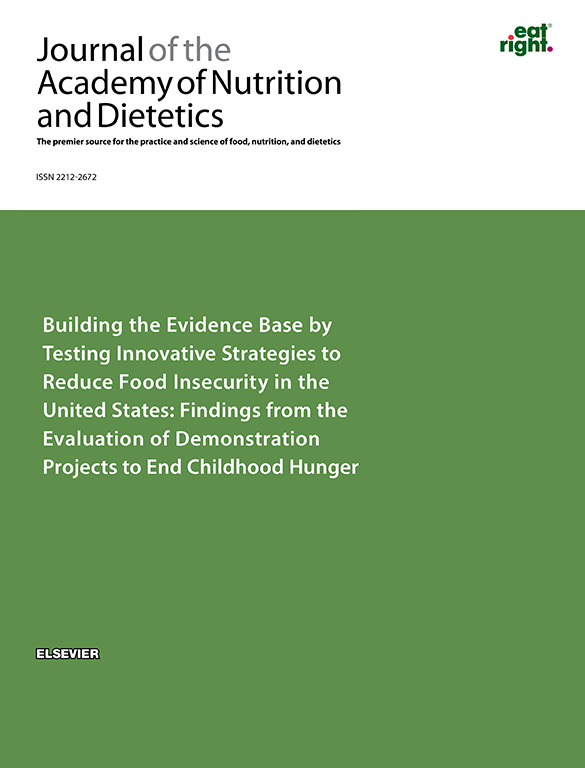
Avocado Consumption and Cardiometabolic Health: A Systematic Review and Meta-Analysis
2022 Dec Journal of the Academy of Nutrition and Dietetics James-Martin G, Brooker PG, Hendrie GA, Stonehouse W
Systematic Review Meta-Analysis Cholesterol AvocadoAvocado consumption may lead to a reduction in total cholesterol and low-density lipoprotein cholesterol levels in people with high cholesterol without impacting body weight.
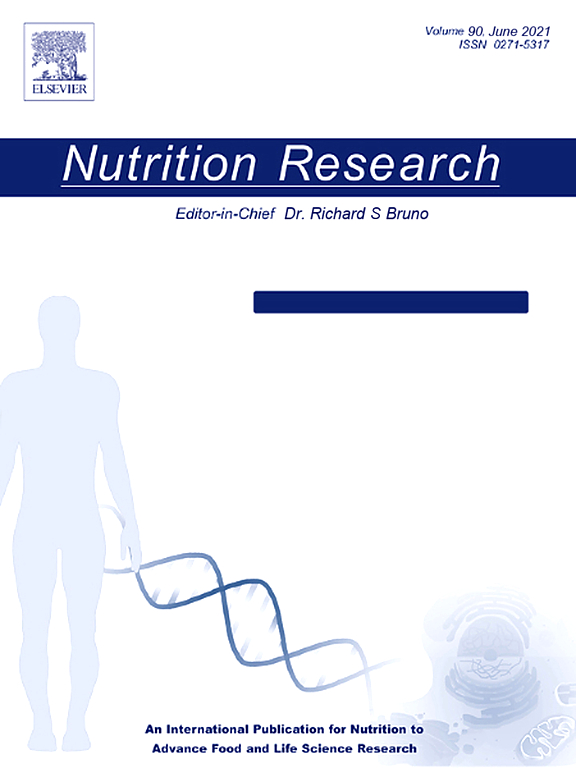
Green tea promotes weight loss in women with polycystic ovary syndrome: Systematic review and meta-analysis
2022 Aug Nutrition Research Colonetti L, Grande AJ, Toreti IR, Ceretta LB, da Rosa MI, Colonetti T
Meta-Analysis Systematic Review Obesity Body Weight Green Tea PCOSGreen tea supplementation can significantly reduce body weight in women with polycystic ovary syndrome, hence potentially beneficial in its clinical management.
Clinical Trials
Clinical trials are research studies that involve people and are conducted to evaluate the safety and efficacy of new treatments or interventions, such as drugs, medical devices, or behavioural therapies.
Study Protocols
Published study protocols are detailed plans that outline the objectives, methodology, statistical analyses, and organisation of a research study that have been made publicly available for others to review and use as a reference.
Presentation Slides

Animal Study
A combination of soybean germ extract and a probiotic significantly improved menopause-related conditions and mood in an ovariectomized rat model.
Lee SH, Lim TJ, Yun EJ, Kim KH, Lim S

Review Article
Theabrownins, a major ingredient in dark tea, significantly contribute to multiple health benefits by modulating lipid metabolism, reducing weight gain, and preventing diseases, surpassing other tea types.
Cheng L, Wei Y, Peng L, Wei K, Liu Z, Wei X

Systematic Review
Natural calcium-rich mineral waters offer a bioavailable calcium source, beneficial for bone health, cardiovascular function, weight management, and overall well-being.
Pop MS, Cheregi DC, Onose G, Munteanu C, Popescu C, Rotariu M, Turnea MA, Dograru G, Ionescu EV, Oprea D, Iliescu MG, Minea M, Stanciu LE, Silișteanu SC, Oprea C

Animal Study
Fermented soy milk significantly improves lipid profiles and fertility in a model of premenopausal mice, due to increased bioavailability and action of beneficial compounds.
Ruiz de la Bastida A, Langa S, Peirotén , Fernández-Gonzalez R, Sánchez-Jiménez A, Maroto M, Antonio Curiel J, Guillamon E, Arqués JL, Gutiérrez-Adán A, Landete JM

Review Article
Oats, in various edible forms, can regulate appetite hormones, aid weight management, strengthen the immune system, and contribute to gut health, making them effective for obesity management.
Shehzad A, Rabail R, Munir S, Jan H, Fernández-Lázaro D, Aadil RM

Systematic Review
Avocado consumption may lead to a reduction in total cholesterol and low-density lipoprotein cholesterol levels in people with high cholesterol without impacting body weight.
James-Martin G, Brooker PG, Hendrie GA, Stonehouse W

Meta-Analysis
Green tea supplementation can significantly reduce body weight in women with polycystic ovary syndrome, hence potentially beneficial in its clinical management.
Colonetti L, Grande AJ, Toreti IR, Ceretta LB, da Rosa MI, Colonetti T

Animal Study
Cooked adzuki beans contribute notably to preventing obesity and regulating gut microbiota composition, while also alleviating systemic inflammation and metabolic disorders.
Zhao Q, Liu Z, Zhu Y, Wang H, Dai Z, Yang X, Ren X, Xue Y, Shen Q
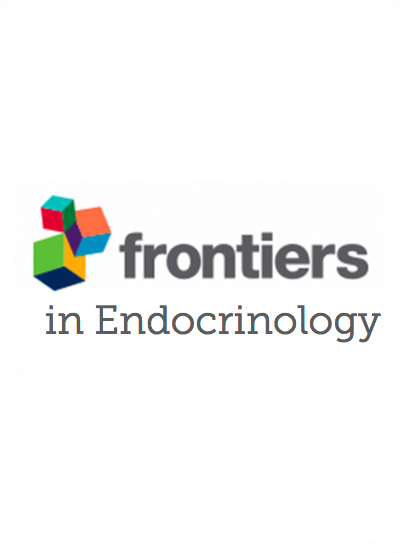
Meta-Analysis
Tea supplements, especially green tea, significantly decrease fasting blood glucose and fasting insulin levels and reduce body weight in women with polycystic ovary syndrome.
Shen W, Pan Y, Jin B, Zhang Z, You T, Qu Y, Han M, Yuan X, Zhang Y

Systematic Review
Cinnamon supplementation may significantly enhance metabolic status in women with polycicstic ovary syndrome, notably improving high-density lipoprotein and insulin sensitivity, and decreasing low-density lipoprotein, triglyceride, and blood glucose levels.
Maleki V, Faghfouri AH, Tabrizi FPF, Moludi J, Saleh-Ghadimi S, Jafari-Vayghan H, Qaisar SA

Systematic Review
Fenugreek supplementation improved lipid parameters in adults.
Askarpour M, Alami F, Campbell MS, Venkatakrishnan K, Hadi A, Ghaedi E.
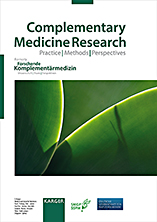
Systematic Review
Green tea consumption notably reduces body weight, body mass index, and body fat, especially in long-term use, at lower dosages, and among overweight individuals with type-2 diabetes.
Asbaghi O, Fouladvand F, Gonzalez MJ, Aghamohammadi V, Choghakhori R, Abbasnezhad A

Meta-Analysis
Supplementation with blueberry shows a potential for beneficial impact on reducing body weight, which might indirectly influence cardiovascular disease risk factors.
Miraghajani M, Momenyan S, Arab A, Hasanpour Dehkordi A, Symonds ME

Systematic Review
Green tea intake can significantly reduce body weight, body mass index and waist circumference, with the greatest effect seen with lower dosages and shorter treatment durations.
Lin Y, Shi D, Su B, Wei J, Găman MA, Sedanur Macit M, Borges do Nascimento IJ, Guimaraes NS
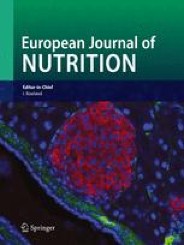
Systematic Review
Apple vinegar consumption has potential health benefits, including weight loss and lower blood glucose levels, with seemingly insignificant side effects.
Launholt TL, Kristiansen CB, Hjorth P
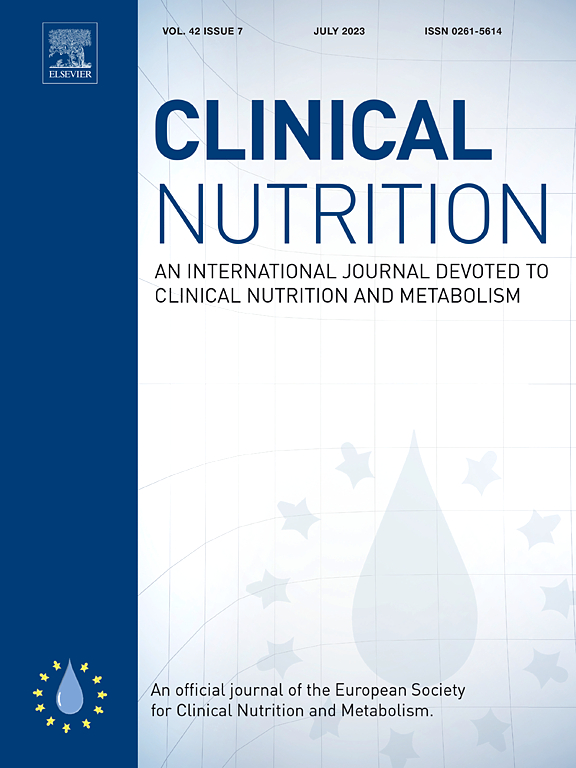
Systematic Review
Cinnamon intake significantly reduces body weight, body mass index, waist circumference, and fat mass in adults, and can be recommended as a supplement for obesity management.
Mousavi SM, Rahmani J, Kord-Varkaneh H, Sheikhi A, Larijani B, Esmaillzadeh A

Systematic Review
Cinnamon supplementation can significantly reduce body weight, body mass index, and waist-hip ratio.
Zeinab Yazdanpanah,Maryam Azadi-Yazdi,Hadis Hooshmandi,Nahid Ramezani-Jolfaie,Amin Salehi-Abargouei,

Systematic Review
Acupuncture is effective in the intervention of overweight/obesity in Asians.
Yao J, He Z, Chen Y, Xu M, Shi Y, Zhang L, Li Y.

Systematic Review
Sesame oil intake was associated with reduced body weight and body mass index.
Raeisi-Dehkordi H, Mohammadi M, Moghtaderi F, Salehi-Abargouei A

Systematic Review
Subgroup analysis suggests consuming at least 30 grams of dark chocolate per day for a trial period between four to eight weeks may lead to reductions in weight and body mass index.
Kord-Varkaneh H, Ghaedi E, Nazary-Vanani A, Mohammadi H, Shab-Bidar S
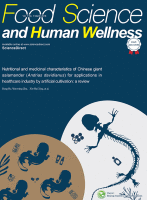
Experimental Study
Pu-erh tea water extracts could potentially enhance liver health and reduce oxidative stress in rats on a high-fat diet.
Jingjing Su, Xueqing Wang, Wenjun Song, Xiaoli Bai, Changwen Li
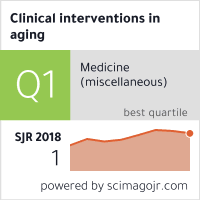
Randomised Controlled Trial
Daily consumption of Puer tea extract results in significant weight loss, reduced body fat, and improved lipid profile in a non-Asian overweight population.
Jensen GS, Beaman JL, He Y, Guo Z, Sun H.
Executive Summary
Write an executive summary in the form of a blog article on the topic of "Research into Chinese medicine treatment for Body Weight" summarising the research below and using language that can be easily understood by patients and avoiding medical jargon using a professional and caring tone of voice.
Write an executive summary in the form of a blog article on the topic of "Researched Chinese medicine treatments for Body Weight" summarising the research below in an objective and easy to understand way, and using language that can be easily understood by patients. Group the article into Chinese medicine treatments first, followed by nutrition and other treatments. Avoid using medical jargon and use a professional and caring tone of voice.
Write me a concise but easy to understand executive summary on the topic of "Chinese medicine treatments for Body Weight" based on the following research that I will give you. Your summary should be 2 paragraphs long in Australian English spelling and include references to the studies.
A Animal Study published in 2023 in the journal Nutrients found that A combination of soybean germ extract and a probiotic significantly improved menopause-related conditions and mood in an ovariectomized rat model. The study employed an ovariectomized rat model to understand the effects of a combination of soybean germ extract containing 30% isoflavone and a probiotic. The methodology included assessing the effects of this combination on several health markers including body weight, estrogen markers, uterine and bone health, vascular markers, and neurotransmitter levels in these rats. Once implemented, the combination of soybean germ extract and the probiotic showcased significant improvement in body weight and uterine and bone health of the rats. There were also noticeable effects on the lipid profile, liver function, and vascular markers. Most interestingly, the combination had a positive impact on the levels of serotonin and norepinephrine, indicating potential mood-enhancing effects, which are crucial in managing symptoms post-menopause. This essentially shows the potential of a dietary approach towards menopausal management, especially given the observed benefits without the side effects typically associated with hormone replacement therapy.
A Review Article published in 2023 in the journal Critical Reviews in Food Science and Nutrition found that Theabrownins, a major ingredient in dark tea, significantly contribute to multiple health benefits by modulating lipid metabolism, reducing weight gain, and preventing diseases, surpassing other tea types. The research focuses on theabrownins, macromolecular pigments found in dark tea, believed to have numerous health benefits. These pigments derive from the oxidative polymerization of tea polyphenols and are observed to have a reddish-brown color and a mellow taste. One of the primary aspects of the research is the method of generation of theabrownins, which is mainly through microbial fermentation. This method seemingly enhances the health-promoting qualities of dark tea, especially its hypolipidemic effect, compared to other tea variants. The results of the study affirm the host of health benefits provided by theabrownins - including the modulation of lipid metabolism, reduction in body weight gain, attenuation of diabetes, mitigation of NAFLD, scavenging ROS, and prevention of tumors. Particular attention was given to the role that theabrownins play in influencing the gut microbiota, leading to significant health benefits. Despite some limitations, these factual conclusions advocate the potential of dark tea in fostering human health, premised upon its theabrownins content.
A Systematic Review published in 2023 in the journal Nutrients found that Natural calcium-rich mineral waters offer a bioavailable calcium source, beneficial for bone health, cardiovascular function, weight management, and overall well-being. This systematic review analyzed peer-reviewed articles, clinical trials, and experimental studies from the past decade. It focused on the health benefits of calcium-rich mineral waters, especially for individuals with lactose intolerance or on plant-based diets. The review process assessed the contribution of these waters to daily calcium intake and their bioavailability compared to other calcium sources. The review found that natural mineral waters high in calcium can significantly enhance calcium intake, with improved absorption rates. These waters show promise in promoting bone health and cardiovascular function, including potential reductions in blood pressure and cardiovascular disease risk. Some evidence suggests benefits in weight management. However, the review highlighted the need for further research on interactions with other dietary components, effects on specific health conditions, and long-term consumption impacts. Despite these gaps, calcium-rich mineral waters are recognized as a valuable dietary calcium source for a diverse population.
A Animal Study published in 2023 in the journal Food Research International found that Fermented soy milk significantly improves lipid profiles and fertility in a model of premenopausal mice, due to increased bioavailability and action of beneficial compounds. In this study, non-fermented soy beverage (SB) and soy beverage fermented with Bifidobacterium pseudocatenulatum INIA P815 (FSB) were tested on both cyclic and acyclic C57BL/6J aged female mice which mimic premenopause and menopause conditions respectively. Over a period of 36 days, the beverages were given to the mice and the variables measured included body weight, lipid and inflammatory profile and fertility. In addition, hepatic gene expressions were examined and the faecal microbiota composition was assessed to further understand the effects of the two beverages. In the results, FSB displayed a higher concentration of the aglycones daidzein and genistein as well as increased antioxidant activity due to the fermentation process. The cyclic mice that were given FSB experienced a significant rise in the number of oocytes and zygotes retrieved. It was also noticed that the triglycerides were lower in the groups that were given FSB compared to the SB groups. However, it was found that neither of the treatments significantly influenced the inflammatory profile or caused a major shift in intestinal microbiota or hepatic gene expressions in either of the groups. Still, it was observed that FSB had more health benefits than SB with regards to the lipid profile and fertility in the cyclic mice, likely due to the increased bioavailability and bioactivity of compounds due to fermentation.
A Review Article published in 2023 in the journal Current Nutrition Reports found that Oats, in various edible forms, can regulate appetite hormones, aid weight management, strengthen the immune system, and contribute to gut health, making them effective for obesity management. The research methodology entailed a review of the role of hunger hormones in managing obesity and studying the influence of different edible forms of oats like whole, naked, sprouted, or supplemented oats on these hormones. The relationship between consumption of oats and various indicators of obesity such as body mass index, waist circumference, body weight, appetite, and blood pressure, amongst others was investigated. Furthermore, the nutritional content of oats like protein, fiber, healthy fats, and bioactive ingredients was analyzed, with particular emphasis on Beta-glucan as it lowers cholesterol levels and enhances the body's defense system. The results of the studies showed that oats have several therapeutic potentials. An intake of oats helps manage body weight and control appetite. In addition, oats positively impact the immune system and lower cholesterol levels in the serum. They also foster gut health by promoting the increased production of short-chain fatty acids. Despite these findings, some studies showed no significant effects of oats on appetite.
A Systematic Review published in 2022 in the journal Journal of the Academy of Nutrition and Dietetics found that Avocado consumption may lead to a reduction in total cholesterol and low-density lipoprotein cholesterol levels in people with high cholesterol without impacting body weight. The study reviewed the impact of diets containing avocado on cardiometabolic risk factors compared with diets containing no or low amounts of avocado. Five electronic databases were searched aiming to identify studies published between 1990 and 2021. The selected studies included randomized controlled trials of three weeks or more and prospective cohort studies. In total, ten studies, nine controlled trials, and one observational study, met the inclusion criteria. Risk of bias was evaluated, and overall quality of the evidence was inspected. Meta-analyses were performed when there were three or more studies of the same design reporting the same outcome. Upon reviewing the results, the study found a minor, noteworthy reduction in total cholesterol levels in the avocado group as opposed to the control groups. There was no significant difference found in low-density lipoprotein cholesterol, high-density lipoprotein cholesterol, or triglycerides. However, in populations with hypercholesterolemia, avocado consumption demonstrated significant reductions in both total cholesterol and low-density lipoprotein cholesterol levels. It is also worth noting that consumption of avocados did not negatively affect body weight or composition.
A Meta-Analysis published in 2022 in the journal Nutrition Research found that Green tea supplementation can significantly reduce body weight in women with polycystic ovary syndrome, hence potentially beneficial in its clinical management. The research carried out was a systematic review of randomized controlled trials that focused on women with polycystic ovary syndrome, examining the effects of green tea supplementation versus a placebo. Relevant studies were sourced from electronic databases such as MEDLINE via PubMed, EMBASE via Elsevier, Cochrane Library, LILACS via BVS, and Web of Science using specific terms related to the illness and green tea. Criteria for the evaluation included effects on body weight, fasting insulin, body mass index, body fat percentage, daily caloric intake, waist and hip circumference, and the waist/hip ratio. Among the studies considered, there were a total of 169 women, with 85 allocated to the green tea group and 84 to the placebo group. It became apparent that there was a significant reduction in body weight for the group that received green tea supplementation. This leans towards the potential of green tea to be beneficial in the management of this syndrome.
A Animal Study published in 2022 in the journal Frontiers in Nutrition found that Cooked adzuki beans contribute notably to preventing obesity and regulating gut microbiota composition, while also alleviating systemic inflammation and metabolic disorders. The methodology involved a controlled experiment where mice were fed diets of varying lipid content: a low-fat diet or a high-fat diet. The specific twist in this experiment was the inclusion or exclusion of cooked adzuki beans to their diet, ensuring 15% of the diet comprised of this. The duration of this dietary regimen was 12 weeks. In the discussion of results, it was discovered that cooked adzuki beans provided key beneficial effects. This included a significant inhibition of weight gain and hepatic steatosis, a reduction in high levels of specific markers such as serum triacylglycerol, alanine aminotransferase, and aspartate aminotransferase, providing a counter to systemic inflammation and metabolism-related endotoxemia commonly found in those consuming a high-fat diet. Moreover, the inclusion of adzuki beans positively affected the gut microbiota composition, reducing fat-inducing bacteria and enriching the gut with beneficial bacteria to help alleviate inflammation and metabolic disorders associated with high-fat diets.
A Meta-Analysis published in 2021 in the journal Frontiers in Endocrinology found that Tea supplements, especially green tea, significantly decrease fasting blood glucose and fasting insulin levels and reduce body weight in women with polycystic ovary syndrome. The researchers conducted a systematic review and meta-analysis by searching published literature in different databases from 1985 to September 2021. The data from randomized controlled trials were extracted to assess the effectiveness of tea versus placebo in women with polycystic ovary syndrome. Weighted mean differences were pooled using a random-effects model. A total of six trials with 235 participants were included in this review. The study resulted in finding that consumption of tea supplements improved body weight, fasting blood glucose, and fasting insulin more significantly when compared with a placebo. Notably, green tea was effective on body weight, fasting insulin, fasting blood glucose, and certain reproductive hormone indexes. The therapy was also found to be safely tolerated by the patients. It's important to note that tea had significant effects on fasting blood glucose and hormone levels in trials with intervention duration of 3 months or more. Differences were noticed among Asian and Caucasian PCOS patients regarding the effect of tea on weight and fasting insulin.
A Systematic Review published in 2021 in the journal Journal of Ovarian Research found that Cinnamon supplementation may significantly enhance metabolic status in women with polycicstic ovary syndrome, notably improving high-density lipoprotein and insulin sensitivity, and decreasing low-density lipoprotein, triglyceride, and blood glucose levels. The systematic review employed a PICO framework where the population was subjects with polycystic ovary syndrome (PCOS), the intervention was oral cinnamon supplement, the comparison group was either a control or a placebo group, and the outcome measured were changes in inflammatory, oxidative stress, lipid profile, glycemic, hormonal and anthropometric parameters, and ovarian function. To gather relevant research studies, databases including PubMed, Scopus, EMBASE, ProQuest, and Google Scholar were searched right from their inception until January 2020 using specific, relevant keywords. Out of the initial 266 studies found, only nine met the criteria for evaluation. The types of studies considered for this review included all clinical trials, animal studies, and english-language journal studies. The results showed a promising improvement in metabolic status in PCOS patients with cinnamon supplementation. This was shown through increased high-density lipoprotein and insulin sensitivity, and a decrease in low-density lipoprotein, triglyceride, and blood glucose levels in these patients. However, the impact of cinnamon on body weight and body mass index was inconsistent across the studies. Similarly, while the studies showed improved results regarding the effects of cinnamon on oxidative stress and ovarian function, the specific mechanisms behind these effects still need to be fully elucidated. Future studies should focus on observing clinical changes after cinnamon supplementation in PCOS through clinical trials with higher doses of cinnamon and a longer duration of intervention.
A Systematic Review published in 2021 in the journal Journal of Ethnopharmacology found that Fenugreek supplementation improved lipid parameters in adults. A meta-analysis of 12 RCTs (14 arms) with 560 participants suggested a significant decrease in plasma concentrations of total cholesterol, triglycerides, and low density lipoprotein cholesterol, as well as an increase in plasma high density lipoprotein cholesterol, while body weight and body mass index were not altered.
A Systematic Review published in 2020 in the journal Complementary Medicine Research found that Green tea consumption notably reduces body weight, body mass index, and body fat, especially in long-term use, at lower dosages, and among overweight individuals with type-2 diabetes. In this systematic review and meta-analysis, a comprehensive search was undertaken on Scopus, ISI Web of Science, and PubMed, for articles related to the topic, up until June 2019. To synthesize the data, a meta-analysis was conducted using the random effects model, and an index was employed to assess the levels of inconsistency in the findings. The assessment of this research involved evaluating eleven eligible articles. Analysis showed that green tea significantly lowered body weight, body mass index, and body fat. Notably, the advantageous effects of green tea were most observable in long-term interventions beyond eight weeks, at doses of green tea equal to or less than 800 mg per day, and among overweight patients. The study underscores the positive role of green tea consumption in improving body composition indicators among type-2 diabetes patients, given these specific conditions.
A Meta-Analysis published in 2020 in the journal Complementary Therapies in Medicine found that Supplementation with blueberry shows a potential for beneficial impact on reducing body weight, which might indirectly influence cardiovascular disease risk factors. The methodology involved searching various digital databases such as ISI Web of Science, Scopus, PubMed, and Cochrane Library in March 2020. The researchers looked for all randomized and controlled clinical trials that used blueberry supplements to modify cardiovascular disease risk factors. Inclusion criteria were not restricted by language. References lists from primary studies and review articles were also checked for any additional studies. The results showed that although blueberry supplementation had a small, insignificant effect in reducing plasma triglycerides, there were no differences found between blueberry and control groups for any other cardiovascular disease risk outcomes. However, subgroup analysis indicated a potential favorable impact of blueberry on reducing body weight. It was found that studies lasting longer than 6 weeks or those that used blueberry powder or freeze-dried blueberry were indicative of significant weight loss.
A Systematic Review published in 2020 in the journal Phytotherapy Research found that Green tea intake can significantly reduce body weight, body mass index and waist circumference, with the greatest effect seen with lower dosages and shorter treatment durations. In the methodology used for this study, several databases were exhaustively searched from their inception to September 2019. The goal was to identify clinical trials that had explored the influence of green tea supplements on obesity indices in humans. The dosage, type of extract, and duration of the intervention were key factors for the study. The study design incorporated the use of a random-effects model to aggregate the collected data. In terms of the study's results, they demonstrated notable changes in subjects' obesity indices following the administration of green tea. A significant reduction in body weight and body mass index was observed, which was consistent across all extracted data. The most noticeable change was observed in the reduction of waist circumference in subjects who were administered an equivalent of 800 mg/day of green tea. Also, a more significant reduction in body weight occurred with a green tea dosage of less than 500 mg/day and a treatment duration of 12 weeks. These results affirm the potential use of green tea in improving obesity indices and the study advocates for the inclusion of green tea supplements, combined with a balanced diet and regular exercise, in obesity management strategies.
A Systematic Review published in 2020 in the journal European Journal of Nutrition found that Apple vinegar consumption has potential health benefits, including weight loss and lower blood glucose levels, with seemingly insignificant side effects. The researchers performed a systematic search of multiple databases such as PubMed, PsycInfo, CINAHL, and Embase to locate relevant articles about the effects and side effects of consuming apple vinegar on metabolic parameters and body weight. They assessed papers that had both primary outcomes (glycated hemoglobin, postprandial glucose, and other terms for blood glucose) and secondary outcomes (waist circumference, visceral fat, high-density lipoprotein, low-density lipoprotein, triglycerides, and total cholesterol), including studies performed on both humans and animals. Each included human study was evaluated for risk bias using a version of the Cochrane Collaboration's tool. Out of the 487 papers identified, 13 human studies and 12 animal studies were included. The results indicate that consuming apple vinegar may have beneficial health effects, and the side effects appear to be of little concern when ingested in recommended quantities and manners.
A Systematic Review published in 2020 in the journal Clinical Nutrition found that Cinnamon intake significantly reduces body weight, body mass index, waist circumference, and fat mass in adults, and can be recommended as a supplement for obesity management. Various online search engines such as PubMed, SCOPUS, Google Scholar, and Cochrane Library were trawled to find relevant articles on the impact of cinnamon consumption on obesity measures. The data from these articles was then combined and expressed as weighted mean difference and 95% confidence intervals utilizing the random-effects method. The potential non-linear association was appraised via fractional polynomial modeling. The study incorporated 12 trials from an initial pool of 679 records, bringing together a total of 786 participants. The aggregated outcome demonstrates that cinnamon intake can significantly decrease body weight, body mass index, waist circumference, and fat mass in adults. The impact on body weight was particularly pronounced in subjects under 50 years old and those with a higher baseline body mass index (≥30 kg/m). Daily dosages of cinnamon at or above 2 grams, and administered for 12 weeks or more resulted in significant reductions in fat mass. There was a non-linear reduction in body weight and waist circumference with the administration of cinnamon over the study period.
A Systematic Review published in 2019 in the journal Phytotherapy Research found that Cinnamon supplementation can significantly reduce body weight, body mass index, and waist-hip ratio. In the meta-analysis, various databases (including Medline, ISI Web of Science, Scopus, Google Scholar, and Cochrane Library) were searched without limitations until August 2019 for relevant randomized controlled clinical trials. The risk of bias of the randomized controlled clinical trials was appraised with the Cochrane collaboration's tool. The random-effects model was employed for the meta-analysis. The conclusive results indicate that cinnamon supplementation has a notable effect in reducing body mass index, body weight, and waist-hip ratio. Meanwhile, cinnamon supplementation didn't yield significant effects on waist circumference and body fat mass. These results were deduced from twenty-one randomized controlled trials involving a total of 1,480 participants.
A Systematic Review published in 2019 in the journal Medicine found that Acupuncture is effective in the intervention of overweight/obesity in Asians. Our meta-analysis demonstrated that acupuncture was effective as an intervention for overweight/obesity in Asians; however, relative to exercise alone, acupuncture plus exercise had no effect on the change of BMI or waist circumstance. The evidence is weak due to the low quality of the included studies. Long-term, high-quality studies are needed to evaluate the efficacy of acupuncture for weight loss.
A Systematic Review published in 2018 in the journal Journal of Functional Foods found that Sesame oil intake was associated with reduced body weight and body mass index. A number of studies suggested that sesame products improve body weight and composition. This was the first meta-analysis of the effect of sesame on body weight and composition. Ten controlled clinical trials were eligible to be included in the systematic review. Sesame supplementation improved body fat percent and body adiposity index. Sesame oil intake was associated with reduced body weight and body mass index. Sesame consumption did not affect other indices of body composition.
A Systematic Review published in 2018 in the journal Critical Reviews in Food Science and Nutrition found that Subgroup analysis suggests consuming at least 30 grams of dark chocolate per day for a trial period between four to eight weeks may lead to reductions in weight and body mass index. The study involved a comprehensive search of 35 randomized clinical trials (RCTs) investigating the impact of cocoa/DC on body weight, BMI, and WC up to December 2017. A meta-analysis, using a random-effects model, assessed the pooled effect size, and fractional polynomial modeling was applied to explore dose-response relationships. The meta-analysis did not find a significant overall effect of cocoa/DC supplementation on anthropometric measures. However, subgroup analysis revealed a potential reduction in body weight and BMI when cocoa/DC was consumed at higher doses (≥ 30 g/day) in trials lasting between 4 to 8 weeks. Notably, the reduction in waist circumference followed a non-linear pattern. In conclusion, while cocoa/DC supplementation may not have a universal impact on anthropometric measures, specific doses and durations could potentially influence weight and BMI.
A Experimental Study published in 2016 in the journal Food Science and Human Wellness found that Pu-erh tea water extracts could potentially enhance liver health and reduce oxidative stress in rats on a high-fat diet. In this study, fifty SD rats were split into five distinct groups and subjected to a high-fat diet. Their body weights were noted daily. Researches measured the serum levels of malondialdehyde (MDA), glucose, catalysts such as alanine aminotransferase and aspartate aminotransferase, nitric oxide synthase, and pyruvate kinase. Besides, hepatic glycogen levels were assessed, along with the activity of liver enzymes like total superoxide dismutase, catalase, and glutathione peroxidase. These measurements were consistently undertaken for a duration of 12 weeks. The findings showcased a decrease in the body weight and fat index of rats after the administration of Pu-erh tea extract. The reduction in body weight and fat index was accompanied by a decrease in malondialdehyde and nitric oxide synthase levels. Interestingly, there was also a noticeable increase in the activities of hepatic total superoxide dismutase, catalase, and glutathione peroxidase. These findings suggest that the Pu-erh extract might reduce the oxidant stress state, inhabit lipid peroxidation, and protect liver health in rats. Simultaneously, the extracts seemed to boost the production of liver glycogen, enhance the activity of pyruvate kinase, and decrease glucose levels, thereby possibly safeguarding the liver from diseases linked to Type II Diabetes.
A Randomised Controlled Trial published in 2016 in the journal Clinical Interventions in Aging found that Daily consumption of Puer tea extract results in significant weight loss, reduced body fat, and improved lipid profile in a non-Asian overweight population. This study employed a randomized, double-blind, placebo-controlled design to evaluate the effects of Puer tea extract. A selection of 59 overweight or mildly obese subjects with high cholesterol levels were chosen and assigned to either consume Puer tea extract or a placebo daily for 20 weeks. Measurements were taken at the beginning and every 4 weeks to analyse lipids, C-reactive protein, and fasting blood glucose. Body composition changes were also observed using a dual-energy X-ray absorptiometry scan. Appetite and energy levels were also self-reported by the participants at each visit. The results indicated a significant weight loss tied to Puer tea extract consumption compared to the placebo. Reductions in fat were noted across several body areas and overall fat mass. These findings were significant within the Puer tea extract group but not when compared to the placebo. The consumption of the tea was further associated with an improved lipid profile, including a significantly reduced cholesterol ratio after 4 weeks and a sustainably normal level of other lipoproteins. The tea consumption was also related to a temporary reduction in appetite but showed no notable changes in fasting glucose or C-reactive protein levels compared to the placebo.
Moderation Tools
Topic
Sign In
Users not signed in are limited to viewing the 5 most recent items of content.